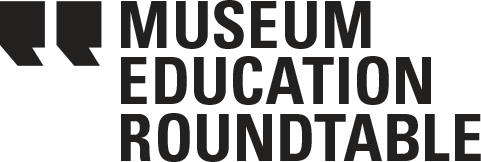MER’s 2nd Annual Excellence in Writing Awards
For the second year, the Museum Education Roundtable (MER) is presenting its annual Awards for Writing Excellence and Editorial Excellence for the Journal of Museum Education (JME). Funded cooperatively between MER and our publishers, Taylor & Francis, these prizes are awarded each year to one or more authors and editors in recognition of the high levels of scholarly dedication, original thought, leadership, and synthesis required to be published in the JME. In recognition of the special attention it takes to bring a stellar article and authors to the table, an additional honor is awarded to the guest editor(s) of the themed issue from which the article is selected. Being a great writer is worth attention; finding and nurturing those great writers is too.
Two articles (by one or more authors) are awarded per year. Determining the criteria for the awards, reviewing a year’s worth of articles, and ultimately recommending and voting on our Excellence Awards is a full Board effort. So what makes for an award winning article? The Award for Writing Excellence goes to the author(s) of the articles deemed by members of the MER board and JME editors to be novel, thought-provoking, and of the highest caliber of scholarship and writing. The awards come with a small monetary prize and the recognition and admiration of peers and colleagues. This year we are recognizing two articles and a combined seven authors, to receive the Writing Excellence Awards. There is no Award for Editorial Excellence this year, as the themed article for the writing award was part of the JME’s open call issue 43.4.
As was the case last year, selecting the final winners was a challenging task in a field of thought-provoking and incisively-written articles. The winning articles for this year’s Awards for Writing Excellence demonstrate the potential for innovative and powerful museum experiences to reach beyond a mere interaction with art, artifact, or content into deeper learning. Their work reflects the leading edge of our field through the development of two different models. In one, museum educators partner with the Toledo school system to focus their curriculum on pre-literacy skills development. In the other, the museum educators design a participatory gallery space so effective that it can exist without the educator, and is truly in the hands of the visitor. Importantly, each of these articles creates a roadmap for how we can transform or modify these practices for our own institutions.
As educators, we understand that museums have the capacity to engage learners in new and vital ways that are social, non-hierarchical, and highly relevant. In a moment where school partners want museum experiences that foster higher-level critical thinking skills in their students, and public audiences seek experiences that actively and socially engage them, museum educators have important roles to play as leaders of innovative learning.
The following Excellence Awards in Writing are being given in 2019:
Phillippa Pitts has received the Award for Writing Excellence for her individual article, “Visitor to Visitor Learning: Setting Up Open-Ended Inquiry in an Unstaffed Space” in issue 43.4 of the JME. In this article, Pitts offers us a detailed review of three unstaffed gallery experiences in the Portland Museum of Art. The gallery designs invite visitors to create works of art that become part of a continually evolving installation. The process is scaffolded so that visitors are learning and sharing ideas with each other, looking more closely not only at their own work, but that of others in the space as well. The creation of art and conversations around them arise without the direction of any museum staff; it is the visitors who support and guide each other. Pitts describes all of this in detail, including the challenges, logistics and exciting outcomes of this work.
Mike Deetsch, Rachel Glass, Regina Jankowski, Evelyn Mylander, Peggy Roth & Elisabeth Wharton have received the Award for Writing Excellence for their co-authored article “Visual Literacy and Its Impact on Pre-literacy Development” in the guest edited section of issue 43.2 of the JME. This article examines a partnership between the Toledo Museum of Art and the Toledo Public Schools focused on the subject of pre-literacy development. The Museum conducted a study using visual literacy interventions with preschoolers who had sets of connected experiences, both in the classroom and the museum. The study specifically examined gains of “tier two” level vocabulary, words that have a particularly powerful impact on verbal functioning. Outcomes of this controlled research demonstrate that, in fact, creating these coordinated experiences using visual literacy methodology significantly add tier two vocabulary to preschoolers. This article offers a replicable model for the kind of direct impact museums can have on early childhood learning.
What issue will propel us forward in 2019? Perhaps it will be yours! Every article accepted for publication in the JME is eligible for the Excellence Awards. We invite you to share your theoretical and practical insights by contributing to the JME. Learn more here!
Meet the award-winning authors and editors:
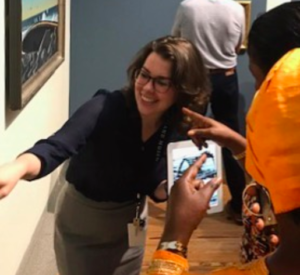 Phillippa Pitts
Phillippa Pitts
At the time of publication, Phillippa Pitts was the Interim Director of Learning and Interpretation at the Portland Museum of Art, leading the team responsible for developing and implementing educational opportunities for all museum audiences. With a decade of experience in the field, Phillippa specializes in innovative and inclusive approaches to exhibition practice, interpretation, and adult learning. In addition to presenting widely at national and regional conferences, she has co-authored several articles and book chapters. Phillippa earned her B.A. from Brown University and her M.A. in Art History and Museum Studies from Tufts University. She is currently the Jay and Margaret Horowitz Fellow for American Art at Boston University, researching the ways in which ideas about nationality, citizenship, immigration, and xenophobia fashion our national narratives.
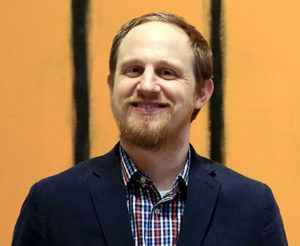 Mike Deetsch
Mike Deetsch
Mike Deetsch joined the Toledo Museum of Art staff in 2013 as assistant director of education. In 2015 he was named the Emma Leah Bippus director of education and engagement, overseeing the docent program, art classes, and museum curriculum. Prior to joining the staff at TMA, Deetsch served as a senior museum educator at the Brooklyn Museum, the exhibition and programs director at the Lexington Art League, and the student programs manager at the Kentucky Historical Society. In 2012 he was selected to participate in the Getty Leadership Institute’s NextGen program. Deetsch received his M.S. in Art Education from the Pratt Institute and a B.A. in Art History from Hanover College.
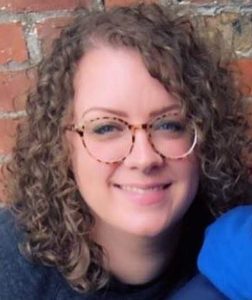
Rachel Glass
Rachel Glass received a bachelor’s degree in art history from Ohio University and a master’s degree in communication disorders from The University of Toledo. Glass is a nationally-certified speech-language pathologist who has been practicing through Toledo Public Schools’ Early Childhood Education program since August 2012. This project was a great opportunity for to combine her love for art with her passion for child development. It was an honor to be a part of this collaborative study with The Toledo Museum of Art.
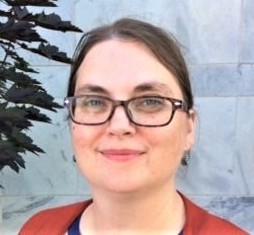
Regina Jankowski
Regina Jankowski graduated summa cum laude with a bachelor’s degree in education Multi-Age Visual Arts from the University of Toledo and is currently licensed to teach in the State of Ohio. She has an Early Childhood Education degree and over 25 years’ experience in the Early Childhood Education field working as a preschool teacher, teaching artist, and currently as a Museum Educator managing the Family Center and the Art After School Program at the Toledo Museum of Art.
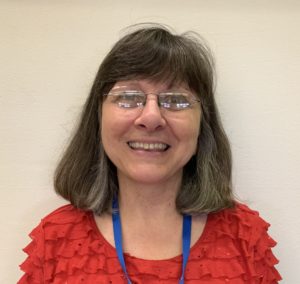
Evelyn Mylander
Evelyn Mylander has worked with young children for 25+ years. Mylander’s undergraduate degree is in Child Development and Family Relations from the University of Rhode Island. She holds a Masters in Early Childhood Special Education from the University of Toledo. Mylander currently serves as Parent Educator in the Early Childhood Department at Toledo Public Schools.
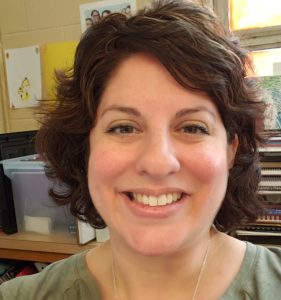 Peggy Roth
Peggy Roth
Margaret “Peggy” Roth, M.S., CCC/SLP, received her master’s degree in speech language pathology from Bowling Green State University and her bachelor’s degree in speech language pathology from The University of Akron. Peggy has spent the vast majority of her career working with the pediatric population. Prior to her employment with Toledo Public Schools (TPS) in February 2012, she was a clinical manager and staff speech-language pathologist for a local non-profit organization. Employment in the preschool setting, co-treating with OT’s and working alongside PT’s and Intervention Specialists, ignited her interest in delivering therapy services in a more holistic and inclusive manner. She has an interest in the development of early childhood literacy and entered into a research study with Toledo Museum of Art regarding early childhood literacy and its tie to language, specifically vocabulary acquisition and retention.
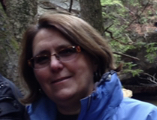 Elisabeth Wharton
Elisabeth Wharton
Elisabeth Wharton, MOTR/L received her master’s degree in occupational therapy from Western Michigan University and her bachelor’s degree in zoology from Rutgers University. Elisabeth was a clinical manager for a large rehabilitation facility in Indiana. After her move to Toledo, Ohio she initially assisted with program development at several local hospitals, worked for Lucas County Children Facility and currently for Toledo Public Schools. Working in schools inspired her interest in the relationship of visual-spatial perceptual motor skills, language development and early literacy. Elisabeth has been a guest lecturer speaking on other topics at the University of Toledo and also the Medical College of the University of Toledo and co-presented several times at OCALI and Toledo Head Start. She is also co-owner of Createable Learning Concepts, educational tools for individuals.
